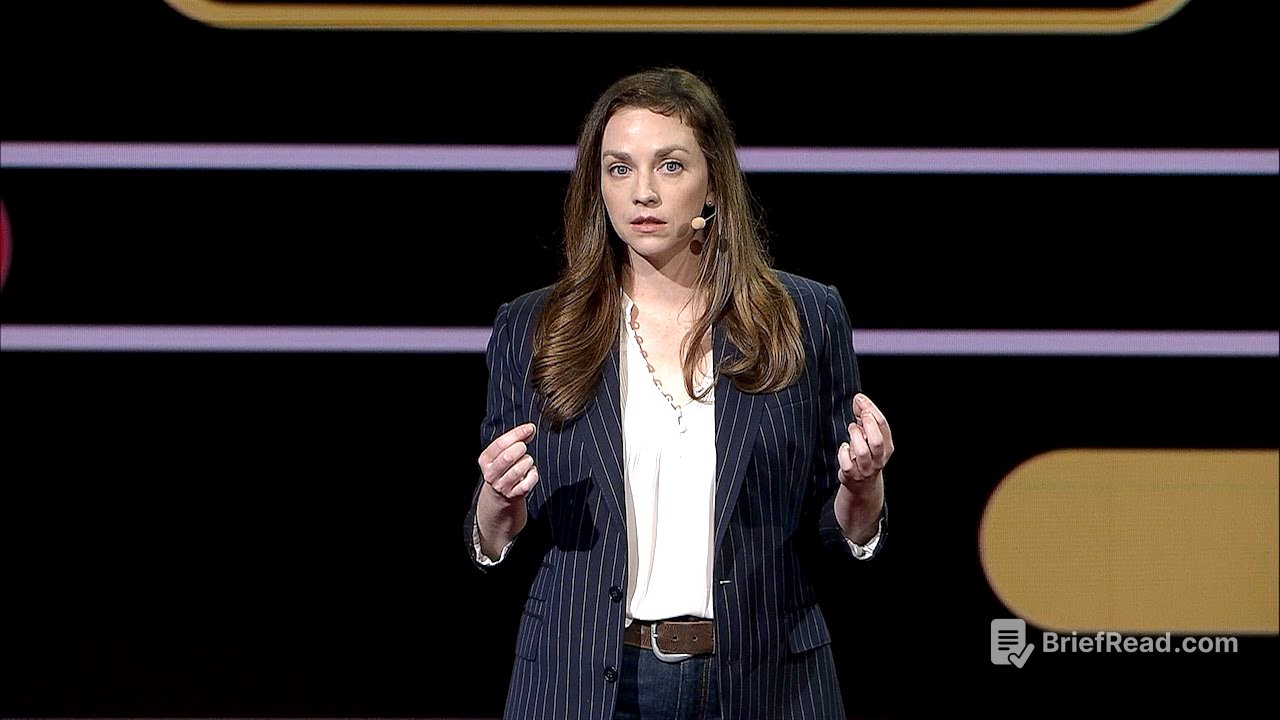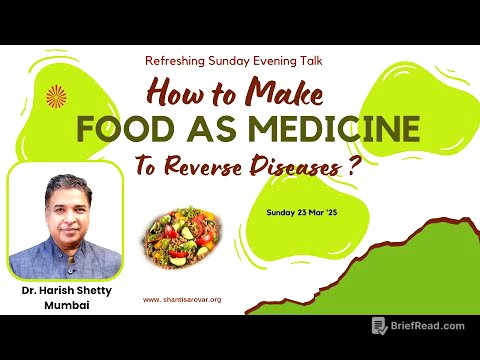TLDR;
Karen Faith discusses how moderating focus groups taught her to welcome all parts of herself, even the difficult ones. She argues that love doesn't require self-love as a prerequisite and that unconditional welcome can foster connection and understanding, both with others and within oneself. By treating her inner voices like participants in a focus group, she learned to manage her internal conflicts with honesty, boundaries, kindness, and gratitude, ultimately transforming her fragmented self into a full-spectrum prism.
- Love doesn't require self-love first.
- Unconditional welcome fosters connection.
- Inner voices can be managed with focus group principles.
Introduction: The Lie About Self-Love [0:18]
Karen Faith opens by challenging the common belief that self-love is a prerequisite for loving others, asserting that she loved others before she loved herself. She emphasizes that love is unconditional and welcomes everyone, regardless of their state. She draws a parallel between this unconditional welcome and her experiences as a focus group moderator, where she learned to embrace diverse perspectives.
The World of Focus Groups [0:44]
The speaker describes the diverse characters found in focus groups, such as the shy one, the chatty one, the grumpy one, and the excited mom. She highlights the unique opportunity these groups provide for people from different backgrounds to share their perspectives. As a moderator, her job is to ensure everyone is heard, creating a community feel that, while not spiritual, taught her to welcome the strange and difficult parts of herself.
The Noisy Mind and Inner Dialogue [2:37]
Karen Faith discusses the internal conflicts within her own mind, describing the various "mes" that exist, such as the sentimental, emotional me and the intellectual, analytical me. She acknowledges that conflicting feelings are common, like being excited about a new job while dreading work, or loving someone who annoys us. However, she focuses on the more difficult thoughts, such as feeling worthless or unforgivable, and her attempts to silence them through various therapies and methods.
Unconditional Welcome: A Researcher's Approach [5:34]
The speaker explains how her career as a people researcher, which she discovered by chance, required her to practice empathy with strangers. Her ability to notice subtle cues like body language and tonal shifts, stemming from her complex post-traumatic stress, made her a skilled observer. She shares her concept of "unconditional welcome," which goes beyond neutrality and involves accepting people as they are, without judgment.
The Turning Point: Welcoming the Unpleasant [7:42]
Karen Faith recounts an experience with an unpleasant research subject who was feeding french fries to an infant and expressing anti-vaccination views. Despite her initial judgment, she used visualization to create a "bubble of unconditional welcome" around herself and the subject. This allowed her to see the woman as a mother protecting her child in a world she didn't trust, leading to a meaningful conversation and a newfound understanding and love for her.
Applying Unconditional Welcome to the Self [10:09]
The speaker describes how she applied the principle of unconditional welcome to her own inner voices, particularly a chatty, demanding, and unreasonable part of herself that expressed a desire to die. Instead of silencing it, she became her own moderator, acknowledging the pain and promising to care for that part while setting boundaries. This dialogue led to a better understanding of her inner self and its needs.
The Mind as a Focus Group [11:36]
Karen Faith illustrates how she began to view her mind as a focus group, with various voices and perspectives. She emphasizes the importance of honesty, boundaries, kindness, and gratitude in managing this internal round table. She thanks her "selves" for their contributions, regardless of how twisted they may seem, and sees her fragmented self not as a broken mirror, but as a full-spectrum prism.
Conclusion: The Power of Welcome [12:18]
The speaker concludes by stating that she now welcomes every voice in her head, even the unreasonable ones, and that they provide valuable insights when accepted as they are. She compares the openings of her self-talk and focus groups, noting the difference in closings: while focus groups end with parking validation and cash, her self-talk ends with love and gratitude. She encourages the audience to practice unconditional welcome with others, as it can reveal parts of themselves to love and foster deeper connections. She reiterates that love doesn't require self-love first and that welcoming others, even strangers, is a simple yet powerful act.









